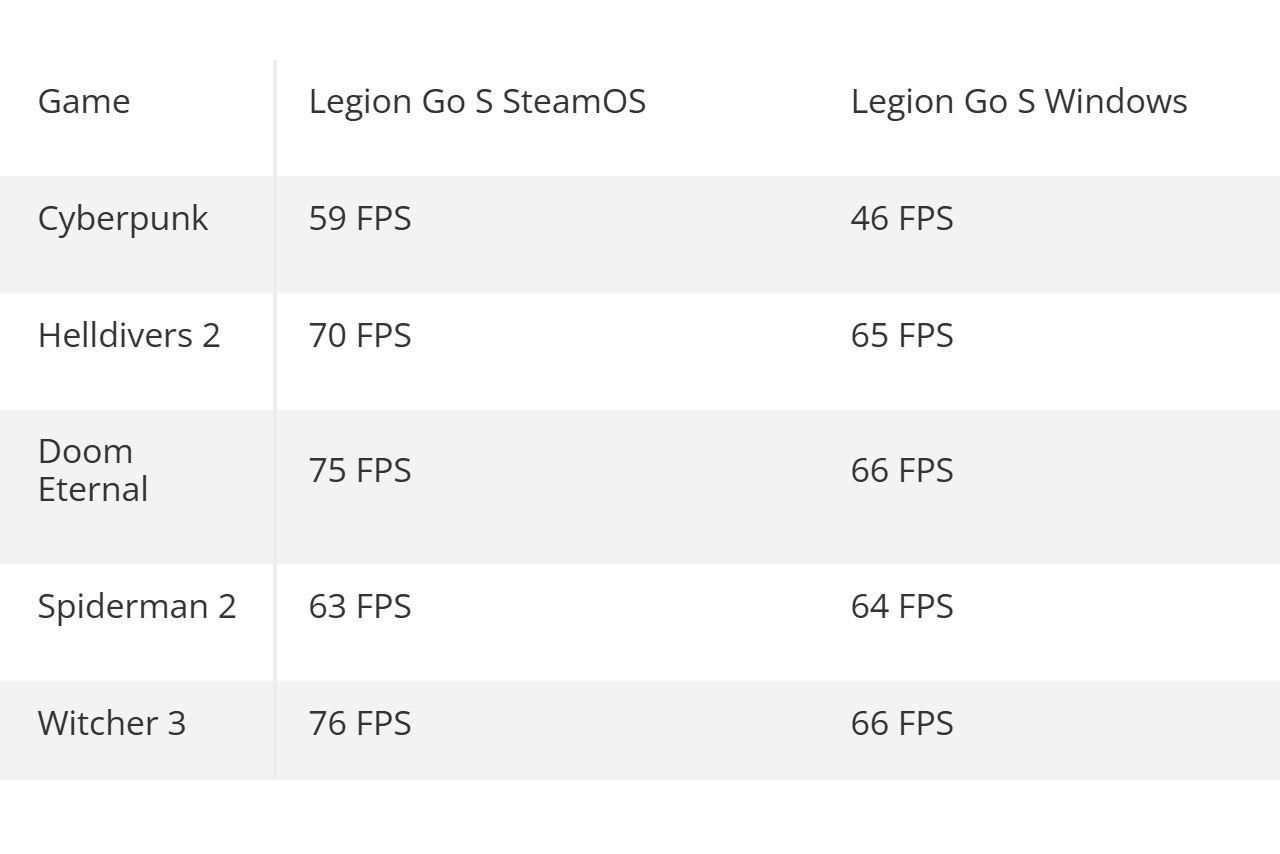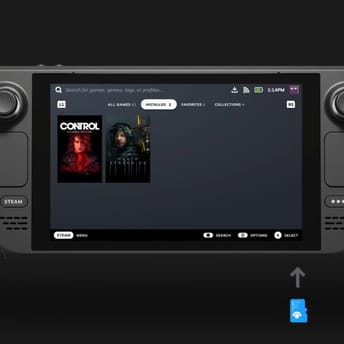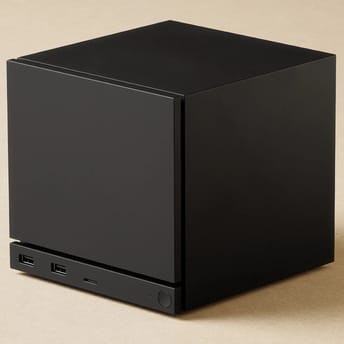SteamOS Outperforms Windows 11 on Identical Hardware

|
|
Key points
- SteamOS achieves higher frame rates on the Lenovo Legion Go S.
- Valve’s OS delivers twice the battery life of Windows 11 in 2D titles such as Dead Cells.
-
Valve has recently expanded official SteamOS support to third-party handhelds like the Legion Go S and ASUS ROG Ally.
Valve’s SteamOS is outperforming Windows 11 in gaming benchmarks on identical hardware, according to tests conducted by YouTuber Dave2D and reported by Windows Central.
In side-by-side testing, the Lenovo Legion Go S running SteamOS outpaced its Windows 11 counterpart across several major titles, including Cyberpunk 2077 (59 FPS vs. 46 FPS), Helldivers 2 (70 vs. 65), and Doom Eternal (75 vs. 66). Despite being run on identical hardware, SteamOS offered higher frame rates in most tests and dramatically better battery life — doubling Windows 11’s runtime in 2D games like Dead Cells.

The Legion Go S originally launched with Windows 11 and was widely criticized for underwhelming performance. The new SteamOS variant, built in collaboration with Valve, appears to unlock the hardware’s potential more effectively, particularly in terms of power efficiency.
SteamOS, a Linux-based operating system developed by Valve, was first introduced in 2013 as part of the company’s now-defunct Steam Machine initiative. While early adoption was limited, the OS gained widespread popularity with the launch of the Steam Deck in 2022. Its success is largely attributed to Valve’s Proton compatibility layer, which allows most Windows-based games on Steam to run seamlessly on Linux. Windows still maintains advantages in overall software compatibility and native support for certain anti-cheat systems — with games like Destiny 2 remaining unsupported on Steam Deck due to BattleEye.
Valve has recently expanded SteamOS support to third-party handhelds, officially adding compatibility for devices like the Lenovo Legion Go S and ASUS ROG Ally.












